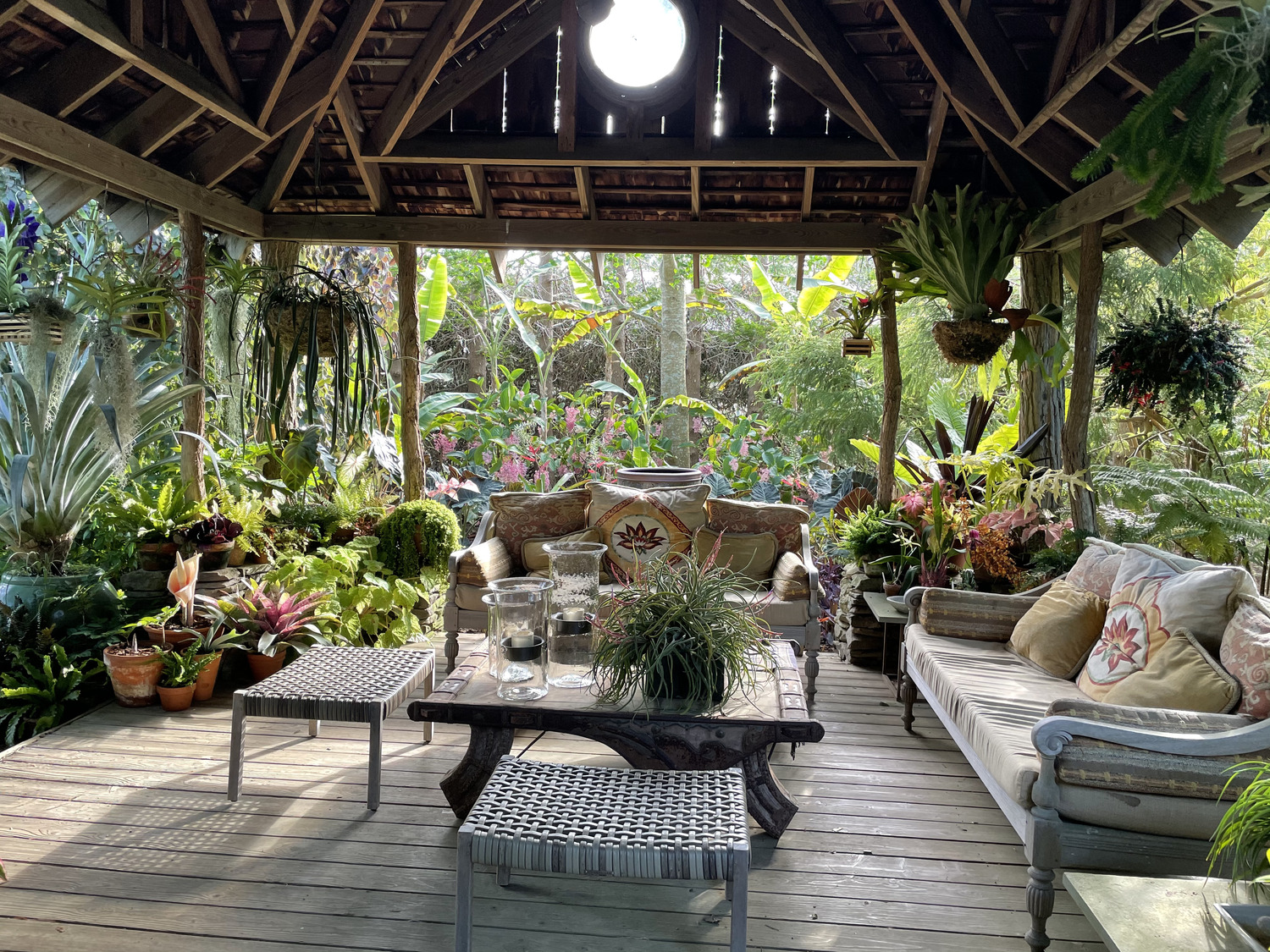
For more than three decades, Dennis Schrader kept his 17-acre garden a privately owned entity. People were, of course, allowed to come by and see his array of plants, flowers and fields by appointment, but once word got out, scheduling one-on-one visits became hard.
That’s when he decided to open it to the public and create an immersive experience where people can become members of the Landcraft Garden Foundation and take advantage of its grounds whenever they like.
Schrader, who is president of the organization behind these fields, purchased the abandoned farm, located between the Long Island Sound, Mattituck Creek and Peconic Bay, in 1992 with Bill Smith. Together, they cleared the brush, poison ivy and thorny rose bushes out of the way, which had not been touched in decades, with the intent of turning this deserted land surrounding an 1840s-era farmhouse into a beautiful and welcoming space with an extravagant garden filled with unusual and unknown plants.
After initially operating it as a private garden, Schrader said that it got eventually got to the point where they would have 2,000 to 3,000 visitors a year — a large group, considering they’re open from May through October. In 2021, they opened the gates on Fridays and Saturdays, 10 a.m. until 4 p.m., allowing people to hang out, take pictures, paint, bird watch and more, with a $20 admission fee (if you don’t have a membership).
“We partner with other community organizations and nonprofits a lot,” Schrader said.
Since it’s a large, outdoor space, Landcraft often will host events for other nonprofits, along with its own, which include art and music festivals and dance troupes. Every weekend, regardless, people can sign up for yoga in the morning and follow with a guided, educational tour learning about all the different plants that have made this area home.
For starters, “We have a four-and-a-half-acre cultivated garden that showcases different plants from all over the world,” he added. That includes native, tropical and exotic ones. There is also a 10-acre reserve with a meadow of native plants, container gardens — hundreds of them — that showcase different collections of succulents and cacti.
After the guided tour, there is usually a workshop of some kind, Schrader said, because another thing they like to focus on is the educational side of gardening.
“We’re horticulturally driven and educationally driven,” he said. “We have workshops, a mentoring program and interns who can take six-, eight- or 12-month courses with us.” They also have dozens of volunteers who help with the garden’s upkeep and work inside the shop, where one can buy their own plants to bring home.
Schrader, who works in landscape design by trade, also owns a nearby 4-acre property that houses a wholesale nursery, where they ship plants and flowers up and down the entire East Coast. They’re also in the process of building a conservatory for the site that should be open in 2025. “That will be an indoor space that will help us do indoor educational programming,” Schrader said.
For first-time visitors, Schrader highly suggests taking advantage of the guided tours. “It takes about two hours to go through the garden,” he said. “You can break away from the tour whenever you like, but our guides are knowledgeable about all of the plants you’ll see as well as the history. You’ll even spot some interesting birds and other wildlife along the way.
“We want people to experience the garden. There are sitting areas where people will just come and hang out — they bring their paints and cameras,” he added. “They’ll just find a place and enjoy it.”
Schrader said that they often get calls from visitors who utilized the gardens and inspiration for their own backyards.
“There are a lot of takeaways for design ideas,” he said. “People send us pictures saying, ‘We tried to duplicate this combination of plants,’ or create a miniature version. It’s great for the community and to learn and professionals, as well.”
Schrader’s favorite spot? Although it’s hard to choose the best, he said, the tiki hut, filled with Polynesian vegetation, is a cool spot to spend time in.
“There are not too many places like this, with this diversity, around,” he said. “There are tons of beautiful gardens, especially on the East End of Long Island, but Landcraft has such a large diversity of plants, starting at native to exotics to tropical.”
But one thing Schrader tries to do every time he’s there is to simply enjoy the little moments.
“In the garden, some of the plants only last a few moments. A cherry blossom will bloom, and a day later the ground is covered in pink petals,” he said. “I always look for those moments in the garden, because they happen so quick.”
And in order to see those fleeting moments, Schrader said a membership is key, so visitors can see everything and take advantage of the open grounds more often than not. With different levels, a basic membership offers free admission on regular open days, discounted admissions to lectures, symposiums, workshops and special events, a discount of 10 percent at the gift shop or plant sales, and special invites to members-only events.
For more information on yoga classes, special events and photos of the constantly evolving grounds, you can follow Landcraft Garden Foundation on Instagram @landcraft_garden_foundation or visit landcraftgardenfoundation.org.